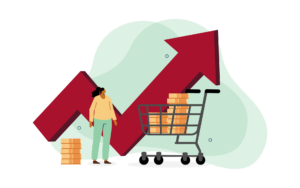Understanding Financial Education Week
In Brazil, the month of May is particularly significant when it comes to raising awareness about money management and personal finances. This is due to the Semana Nacional de Educação Financeira (National Financial Education Week), a government-supported initiative held annually to promote financial literacy across the country.
This week usually involves public and private partnerships, including banks, schools, NGOs, influencers, and professionals in the financial market, all working together to educate the population on how to make informed and responsible financial decisions. Through lectures, workshops, campaigns, and online content, the initiative seeks to strengthen the population’s understanding of how money works and how to make it work for them.
Now, let’s dive into what financial education truly means, why it is essential, and how anyone can begin their journey toward financial empowerment.
What Is Financial Education?
A Lifelong Skill, Not a One-Time Lesson
Financial education is the process of developing knowledge and skills to manage financial resources effectively. It goes far beyond knowing how to save money or balance a budget—it encompasses understanding how to spend, invest, borrow, protect, and plan.
With proper financial education, people are more capable of making responsible choices that impact not only their own lives but also their families and communities.
Why Is Financial Education Important?
1. Reducing Debt and Financial Stress
In countries like Brazil, where many households struggle with credit card debt, loans, and lack of emergency funds, financial education offers powerful tools to avoid or manage these challenges. When individuals understand interest rates, credit scores, and budgeting techniques, they are less likely to fall into debt traps.
2. Encouraging Healthy Financial Habits
From a young age, people can learn how to distinguish between wants and needs, how to save regularly, and how to set realistic goals. These habits, when formed early, lead to better financial outcomes in adulthood.
3. Promoting Social and Economic Inclusion
Financial education empowers people from all socioeconomic backgrounds to access better opportunities. It promotes financial inclusion by teaching individuals how to use banking services, digital wallets, and investment platforms. This inclusion is especially important in a country as diverse and economically unequal as Brazil.
4. Preparing for the Future
Whether it’s planning for retirement, buying a home, or funding education, financial planning is key. Financially educated individuals are more likely to invest in their future, leading to greater stability and well-being.
Key Pillars of Financial Education
1. Budgeting
A budget is the foundation of financial control. It allows people to track income and expenses, allocate resources wisely, and avoid overspending.
2. Saving
Setting aside money regularly, whether for short-term goals like a vacation or long-term goals like retirement, is essential. A well-funded emergency reserve can also be a financial lifesaver.
3. Investing
Investing is about making your money grow over time. Learning about stocks, bonds, real estate, and other options opens the door to financial independence.
4. Credit and Debt Management
Understanding how credit works, what responsible borrowing looks like, and how to avoid or manage debt are all crucial parts of financial education.
5. Financial Planning and Protection
This includes setting goals, creating a long-term financial strategy, and considering insurance or legal protections to guard against unexpected events.
How to Start Your Financial Education Journey
1. Read Books and Articles
There are countless resources available online and offline. Books like “Rich Dad Poor Dad” by Robert Kiyosaki or “The Psychology of Money” by Morgan Housel offer great insights.
2. Use Digital Tools
Apps that track expenses, simulate investments, or provide personal finance tips can be excellent daily tools for learning and improvement.
3. Take Online Courses
Platforms like Coursera, Udemy, and even Brazilian institutions like ENEF offer courses on personal finance, often free or at low cost.
4. Follow Financial Educators
Social media is full of professionals and content creators sharing valuable financial tips. Look for credible, experienced voices who explain concepts in simple and practical ways.
The Power of Financial Education
Financial education is a tool of freedom. It empowers individuals to break cycles of poverty, reach personal goals, and build a better future. In a country like Brazil, where many still struggle with financial instability, national initiatives like Financial Education Week are essential to spreading this knowledge.
But remember: financial education is not something we learn once—it’s a lifelong journey. The earlier we start, the better our financial future will be.







